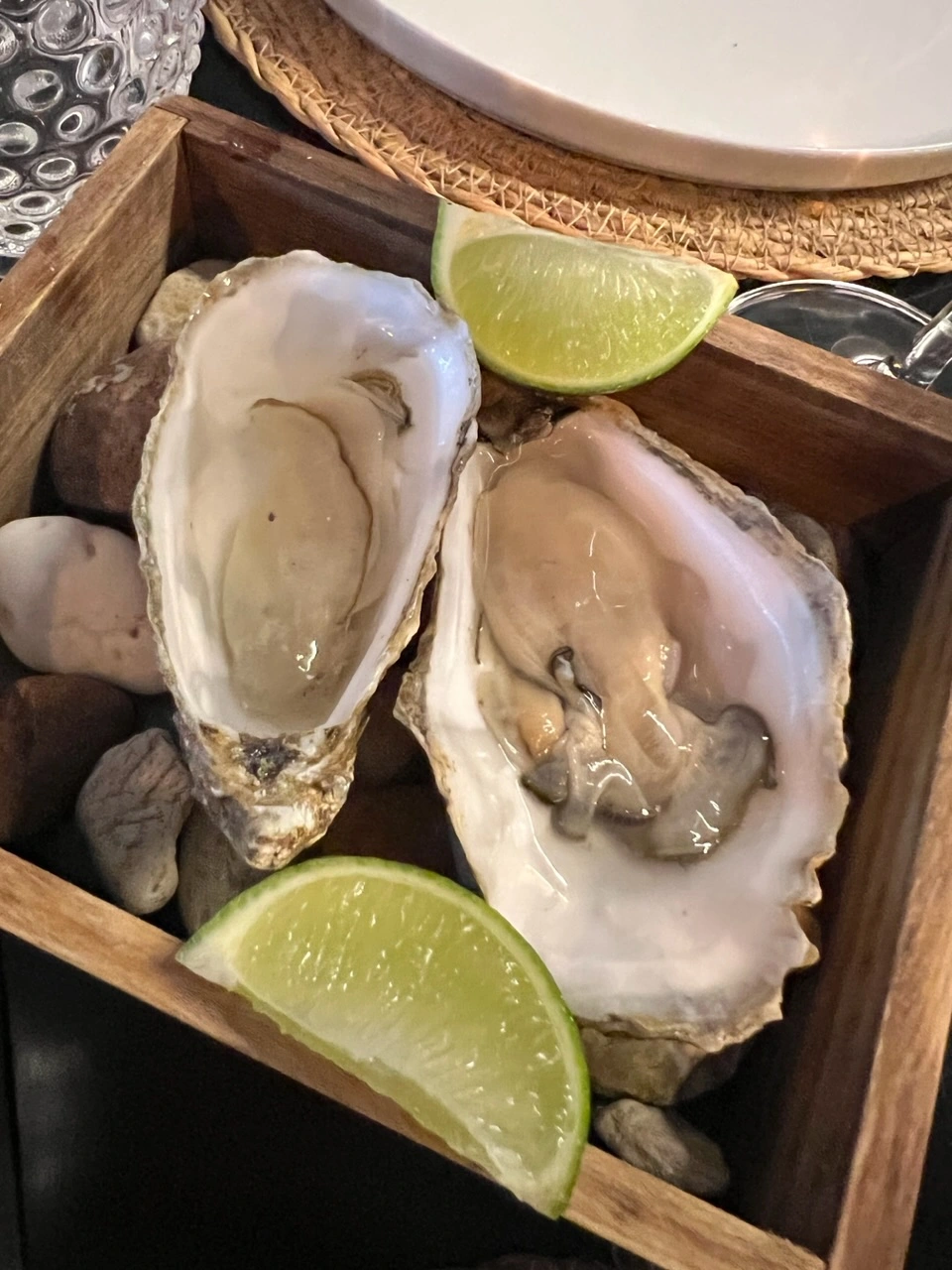The US Food and Drug Administration has proposed revoking its regulation authorizing the nationwide use of brominated vegetable oil, or BVO, as an additive in food.
The FDA’s decision comes after California banned the ingredient in October by passing the California Food Safety Act, the first state law in the United States to ban brominated vegetable oil. The additive is already banned in Europe and Japan.
“The agency concluded that the intended use of BVO in food is no longer considered safe after the results of studies conducted in collaboration with the National Institutes of Health … found the potential for adverse health effects in humans,” said James Jones, the FDA’s deputy commissioner for human foods, in a statement.
Alternative title: FDA proposes finally catching up with Europe on food safety
Let’s not get ahead of ourselves
The FDA is maybe thinking about possibly becoming interested in catching up to EU food standards.
Fixed.
In one of thousands of positions.
Just because the EU does something first doesn’t mean they were right to
Aside from a few World Wars, they’ve been right more often than the US.
Regarding public safety restrictions? Or are you just making the mistake that anything the EU does is progress that we will catch up to eventually?
Your phrasing implies that you’re looking to pick a fight. You can do that elsewhere, I’ve got more important things to do.
clearly not
Also, I’m never looking for a fight. I’m looking for people to say “yes sir” and do what I say
Erroring on the side of public safety seems a whole lot better than erroring on the side of companies only interested in profit.
Fearmongering ain’t freedom. This is America. We don’t trade freedom for safety like bitch ass Europeans, we ride rockets like bucking broncos for fun. Life is cheap, freedom is priceless.
But genuinely, sometimes the EU is just overly cautious. And in the case of the point I was making, again, just because the EU made a regulatory decision doesn’t mean they were right to do so.
You can’t use MOST of our candy flavorings in the EU. Do you genuinely think our candy is poisoning just because it’s artificial, or is that just the naturalistic fallacy talkin
Absolutely, I mean just look at the new privacy bill, which the very latest revision has them hijacking website certificates so they can spy on people as they please.
However, when it comes to food safety, the EU has been far ahead of the US. The US basically dismissed a bunch of concerns back in the 1970s, and outside of California they’re only now just reviewing them and accepting that they aren’t that great. Things under the classification “Generally Recognised As Safe”, or GRAS, which are unlikely to cause accute harm when taken in normal doses, however for many of them there is strong evidence of harm when taken frequently over a long time.
Suffice it to say, food in Europe is generally of a higher quality and standard than the US, because the EU has better regulations in this field.
Don’t worry about the downvote, this is true, especially with their harder stances against GMOs and nuclear power that are based on fearmongering rather than science. We need GMOs and nuclear to reduce climate change.
That said, this isn’t a comment on whether or not BVOs are bad, just that the EU banning something isn’t alone a reason to ban it here
While it’s true that their stance against GMO was largely unfounded, they’ve generally made better calls with most things when it comes to food safety. In some sense, their stance against GMO was still valid, given that it was new technology - the real issue is how readily they move back on that when more evidence comes out.
For anyone else curious, it was in there as an emulsifier, particularly for citrus flavor oils.
These days it’s mainly found in generic branded products, such as Walmart’s Mountain Lightning. Mountain Dew is one of the more recent big brand names to remove it, back in 2020.
Interesting case from the Wikipedia:
There are case reports of adverse effects associated with excessive consumption of BVO-containing products. One case reported that a man who consumed two to four liters of a soda containing BVO on a daily basis experienced memory loss, tremors, fatigue, loss of muscle coordination, headache, and ptosis of the right eyelid, as well as elevated serum chloride. In the two months it took to correctly diagnose the problem, the patient also lost the ability to walk. Eventually, bromism was diagnosed and hemodialysis was prescribed which resulted in a reversal of the disorder.
That case sounds crazy… I am not the healthiest of people, but who can drink 2 or more liters a day every day? Sucks that it happened, but I guess it is good that we found all these terrible things it does as well? I just wonder how it affects people in moderation. Does it really do anything in low doses over long periods of time, or would it be harmless? Of course, why even find out if it can just not be used…
When I still drank pop regularly, my rate of buying it was 2 12 packs of cans every other day, so a 12 pack of 355ml per day, or about 3.8L. I’d just have them by my desk and when one ran out, I’d grab one of the other flavour and just alternate all day. I’m not really sure how I didn’t end up diabetic or obese because pop was my main drink when I wasn’t getting drunk for almost a decade after leaving home and being in charge of my own habits. I kept that 3.8L peak going for a couple of years until information about HFCS and then sugar in general started my journey from pop to juice then to mostly just water.
Sounds like our one friend a while back. He was super skinny and didn’t drink alcohol but he would bring a 12 pack of Pepsi with him and would call them blue bullets. We had no idea how he survived, years later he even got an ok report from the doctor which we all thought was crazy including himself. He has stopped in recent years, thankfully, and knew even though nothing happened yet something bad was definitely going to sooner or later.
It’s a form of self-medication. More than likely these people need a diagnosis of who-knows-what.
It was in Gatorade and other sports drinks for a long time, and athletes probably drink more of that while also pushing their bodies to more extremes than the rest of us, and I didn’t see any evidence of harm going on there when I was looking up what BVO was.
The body is really great at removing both things, but with any substance, too much can exceed an organ’s capacity to desk with it. Even water is deadly (very painfully, too) if you drink too much too fast. Your cells will burst from osmsosis. Brain cells are especially susceptible. It’s called hyponatremia.
Probably cause real athletes don’t drink Gatorade. Too much sugar and not enough potassium. Electrolyte beverages and coconut water are more common among athletes.
The people who are drinking 2+ liters a day aren’t drinking any water. Soda is literally the only form of hydration they get. I know it sounds unbelievable but I used to know people who lived like this. Personally I wouldn’t last a day before my body starts demanding water. I don’t know how they do it.
And that’s why you don’t eat or drink huge amounts of any one thing. Sounds like smaller amounts, even daily, would be perfectly tolerable by most people.
There’s a guy who drank up to 4L of Earl Grey tea every day until he developed muscle and eye problems. Or the guy who ate a bag of black licorice every day until he had a heart attack and died.
Exactly. Most things we can handle from time to time. It’s constant exposure that tends to make most things problematic.
Good. Ban dyes, too. IDGAF if my cola is brown. IDGAF if my mountain dew is the color of radioactive piss.
Coke should be in the clear it should be using caramel colour. For green there’s chlorophyll copper complexes, for yellow tumeric. No it won’t look radioactive but who the fuck cares.
…it’s not like food producers aren’t using colouring in the EU, it’s that they’re going “oh here is what we have, let’s see what we can do with that” and not “here’s a colour chart, marketing wants it to look like this, make it work with ridiculous amounts of chemistry that’s never been tested on animals much less humans who cares where the chips fall they won’t fall this financial quarter”.
I’m not concerned for health. It’s unnecessary. It is added to give the drinks a color. Just cut it out, even if it costs almost nothing.
It’s not really unnecessary, colour plays a role in aroma perception. Cherry drops don’t taste like cherry when they’re green instead of red. They still taste fruity, sure, but unless you’re highly trained and experienced you won’t be able to pick out the aroma.
And stuff like e.g. lemon doesn’t have enough colour on its own to provide that kind of stimulus. So you get some turmeric with your lemon juice and zest in your lemon drops and what’s wrong with that.
I’m just saying let things be whatever color they are.
“I don’t care that there’s nothing wrong with it I just don’t like it.”
How dare you restate my comment exactly as I intend it. I just don’t like it.
We will have a grade school children uprising when all their candy stops being bright orange, green, and blue.
The most valid argument against my position, right here.
Clearly companies have been able to make the sodas just fine without it, so even if it isn’t very harmful, it seems best not to include it. Food additives are like software bloat, the more you have, the more attack surface (in this case, possibility albeit small chance of undiscovered health problems) you get, so one should only use what actually is useful
Are we just glossing over the job title, “Deputy Commissioner of Human Foods”?
Seems reasonable. I imagine foods for human consumption and animal consumption require different specialties.
Hmm, Human Foods… I like it!
Kind of a badass title for weird titles.
But isnt that what plants crave?
Looks like it’s back to drinking out of the toilet for me
“Found in”…? I think you mean “put into”.
For fucks sake
Mountain dew has brominated vegetable oil in it in case u were wondering what products.
Only if you’re drinking a old bottle. It hasn’t been an ingredient for years.
Just checked the label, and you are correct. There is no BVO in Mt Dew.
How many years?
There’s another comment that says it was done in 2020.
Years.
Mmmmm… bromine!
It’s not as straightforward as that. There is chlorine in your food in the form of sodium chloride aka table salt. How something is bonded can change its properties. Not saying there isn’t merit to their claim, just that it’s more complicated.
Definitely this, you can drink H2O no problem, but H2O2 and you’re going to have a bad time. And yes, probably no need to have brominated vegetable oil in our food at all.
Some popular drinks that contain BVO include Gatorade, Mountain Dew, Fanta Orange, Fresca, Squirt, Sunkist Pineapple, and some flavors of Powerade.
Yeah all of these are killing you with sugar, too
Fresca is calorie free, so it’s not killing you with sugar. Probably killing you with other stuff, though…
BVO, maybe?
Great point, and I encourage everyone to look up the difference between the fluoride in toothpaste and the extremely toxic acid the US puts in our drinking water.
It’s banned in the EU, Japan, and a bunch of other industrialized countries who have identical rates of tooth decay, but statistically significantly lower rates of ovarian cists and low male testosterone (among other things)
The elements don’t matter, the molecules most certainly do















